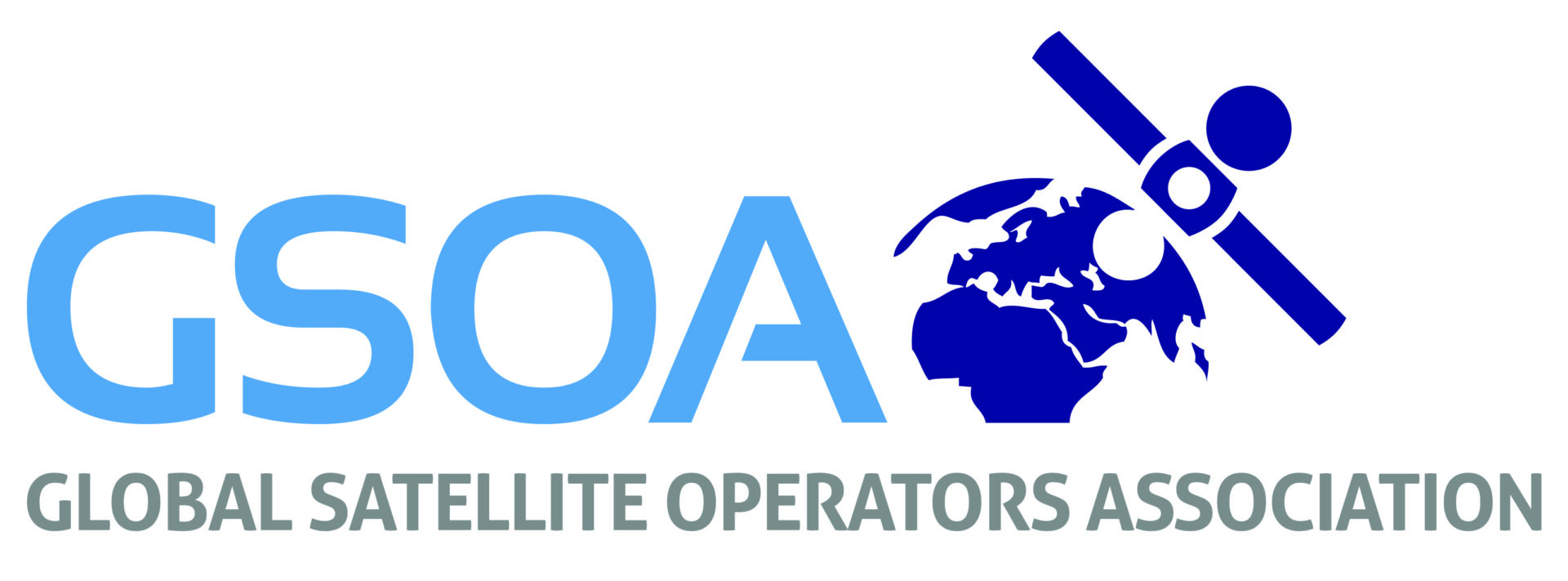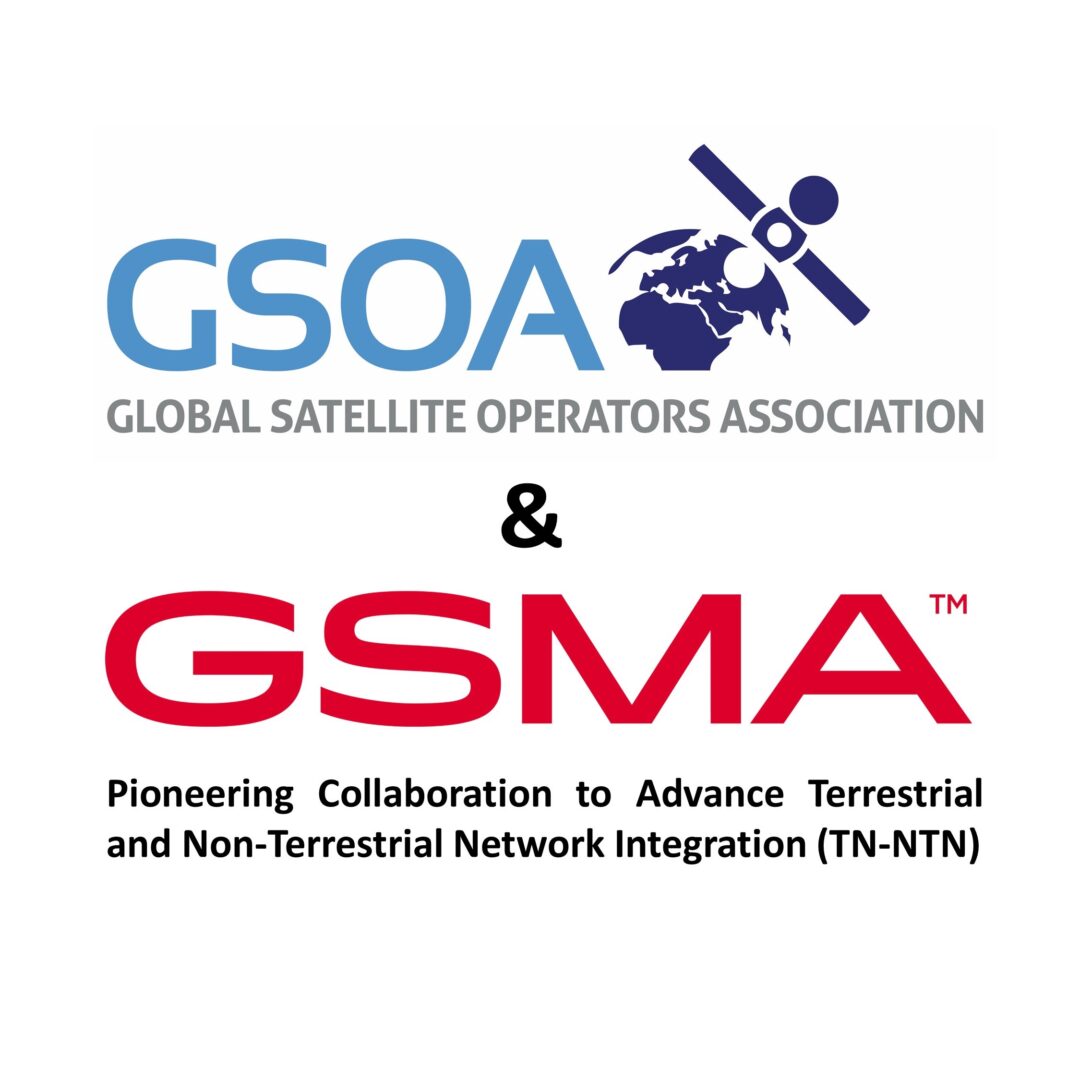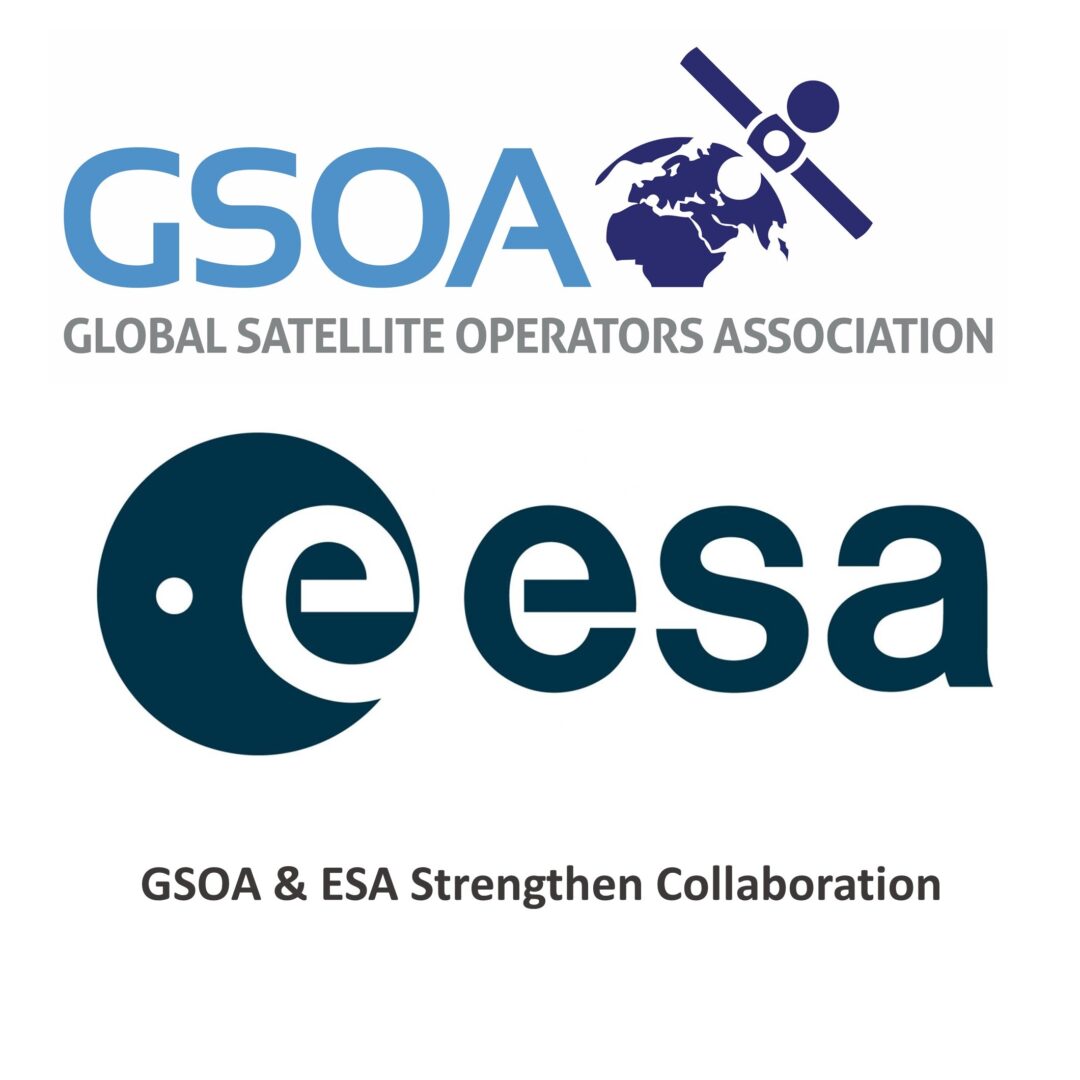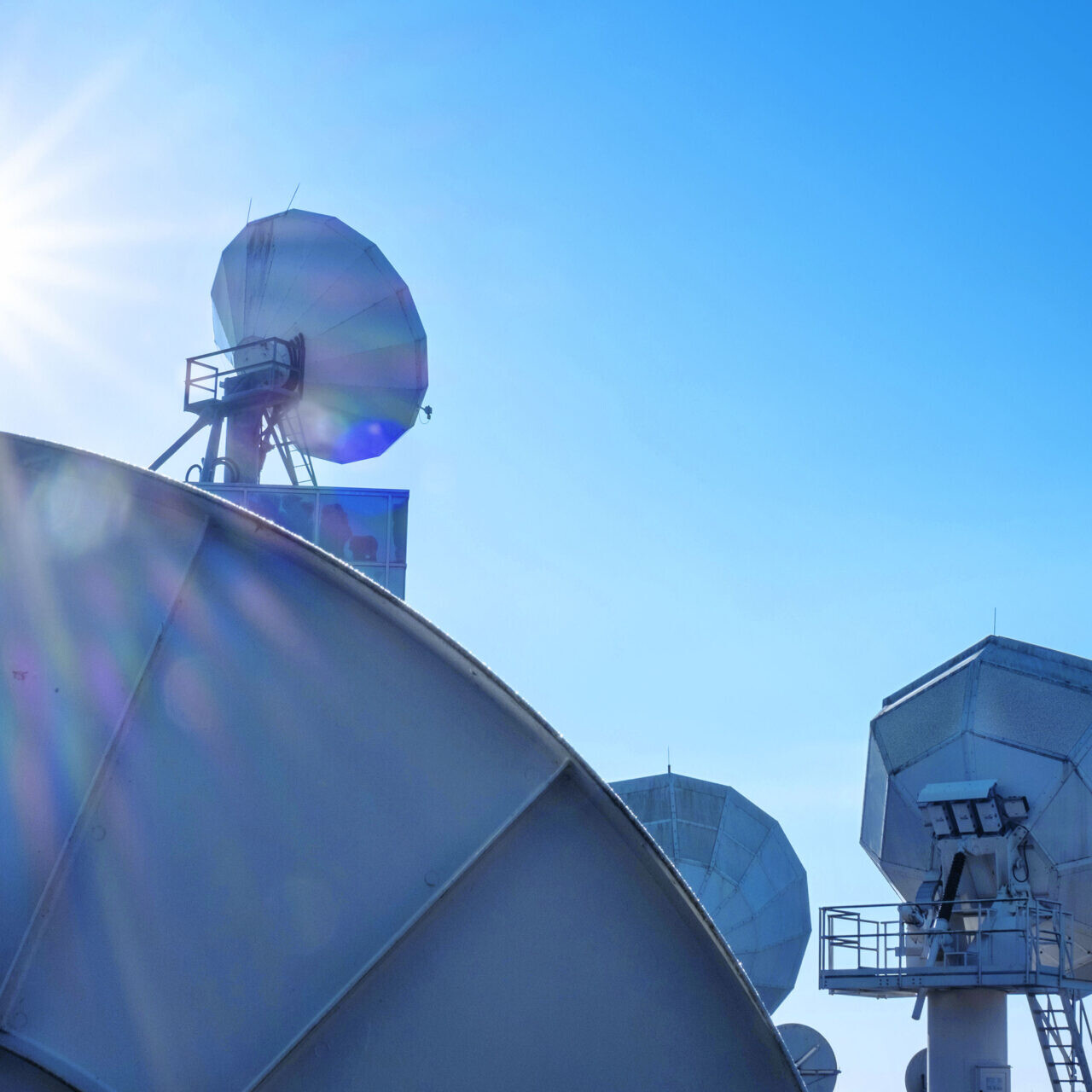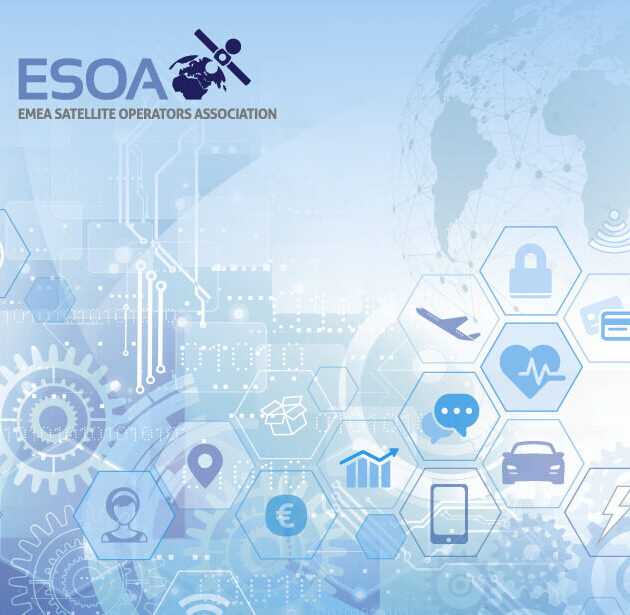Keeping people connected, informed and protected
Numerous examples demonstrate how ESOA Members are contributing to improving lives and preserving the health and well being of world citizens. They include direct connectivity, facilitating e-learning or tele-health solutions, providing secure connectivity for police and first responders, supporting UN and other humanitarian missions and keeping everyone informed through live global coverage.
Direct Connectivity keeping millions online while at home – Since the start of the pandemic, satellite operators providing broadband connectivity directly to consumers have seen a 15-70% (depending on the country) increase in data traffic across Europe and the Americas and an increase in subscriptions in United States, Mexico and Brazil. Dedicated actions include prioritization of educational and business collaboration applications and making WiFi hotspots available to anyone who needs them. Both Echostar and Viasat signed the FCC’s ‘Keep Americans Connected’ Initiative ensuring everyone will remain connected by waiving late fees, not terminating services and opening Wi-Fi spots.
Additional backhaul capacity for MNOs as they connect more citizens dispersed across countries – While people often work in urban areas, many of them live outside cities and even on islands. They all need good connectivity to continue working, follow online classes or connect with their loved ones. Many satellite operators support MNOs as they bring connectivity to suburban and rural areas and this connectivity has surged during lockdown: an MNO in Japan relying on Intelsat satellite backhaul for 4000 3G/4G sites has seen a 50% increase in traffic over the satellite network. In Alaska, SES Networks has provided additional capacity to OptimERA for Remote Working, Distance Learning and Telemedicine in Rural Alaska City Under “Stay at Home” Rule.
Broadcasting live information to millions and education channels for remote learning as children stay home –In these exceptional days where millions are quarantined but rely on up-to-date information and updates from the WHO and authorities and updates from other parts of the world, satellite broadcasting has delivered live coverage of interviews and government briefings. Broadcasting solutions have also been used to ensure continuity of elementary, middle and high school education for children in Turkey. Turksat is broadcasting 6 specific channels through Türksat 4A while Arabsat is delivering educational content to more than 6 million students across via 15 educational channels in collaboration with IEN TV – the Saudi Arabian Ministry of Education Channels Network. SES also broadcast the #SpaceConnectsUs, a virtual town hall meeting with astronauts, scientists and celebrities to talk about life in confinement and isolation, sending a message of hope, trust in science and mutual encouragement for everyone.
Enabling essential healthcare for isolated people – Tele-Health solutions are always key for those living in isolated regions that would otherwise not be treated. During the pandemic, they have proved crucial in helping identify potentially affected patients, referring them were appropriate and exchange information with central hospitals. In the light of the COVID-19 outbreak, the government of Luxembourg has made the use of the SATMED eHealth platform available free of charge for the healthcare professionals’ community. SATMED is installed in hospitals, remote medical centers and hospital ships in multiple locations across Africa and Asia Pacific, including in Niger, where the Hôpital des Enfants au Niger is using it to establish communications with national and international doctors to receive updated information and improve their knowledge and situational awareness. Hellas Sat has partnered with Africom to assist the efforts of the Government of the Republic of Zimbabwe providing free unlimited broadband connectivity to 127 public clinics and hospitals across the country. The deployment was undertaken by Africom which resuscitated connectivity to infrastructure that was initially set up in 2016 at various clinics and hospitals but due to challenges in accessing adequate foreign currency to pay monthly rentals the sites have been idle.
Supporting first responders & public safety as they step up their engagement to fight the Pandemic – First responders are now using mobile vehicles very heavily and have been forced to prioritize the traffic from these emergency vehicles on mobile networks amidst the global traffic surge and add new bandwidth to accommodate the needs. It is expected that more of these mobile units with satellite backhaul will be needed, especially around hospitals and care centres. Solutions such as Intelsat´s FlexMove become key to connect ambulances, paramedics, mobile command and test centres and provided portable connectivity for temporary clinic and test facilities. Incident response teams are even relying on satellite communications in urban areas that area already connected with 4G to have a guaranteed and secure network and avoid the risk of congestion on 4G networks.
Providing connectivity at sea as essential crew remain onboard cargo ships – Crew on board cargo vessels are not allowed to disembark as they work to ensure the continued global trade of essential goods including food, oil & other infrastructure essentials that are typically transported by sea. As well as ensuring continuity of business operations, use of satellite connectivity has increased as telemedicine and crew welfare is enabled including entertainment (streaming OTT videos), social media and general connectivity thanks to satellite operators providing additional free of charge services. Inmarsat is connecting crew during COVID-19, formalising a sweeping 50% discount for crew voice calling services.
Supporting humanitarian missions as they coordinate their operations from vulnerable locations to HQ – Connectivity requirements have increased across multiple countries for many humanitarian missions including NGOs and UN agencies. Emergency telecommunications agency Télécoms Sans Frontières has deployed the first Inmarsat IsatPhone 2 satellite phones to the National Institute for Disaster Management in Mozambique, to help the coordination of the country’s response to COVID-19. A UN Agency operating across 2 countries & 7 mission sites increased its capacity by 150Mbps due to the pandemic.
While the satellite sector has always worked relentlessly to connect the unconnected and bring health and learning to isolated communities, the Pandemic has highlighted the need for a cohesive digital ecosystem and the urgency of ensuring connectivity everywhere, to prevent, inform, connect and support people, governments and economies, beyond COVID19.
ESOA Members at work list:
Türksat enables Remote Learning so Turkey can stay home
In order for ‘Turkey to stay home’, the Turkish Ministry of Transport and Infrastructure teamed up with TRT, the Turkish national broadcaster & Turksat, the Turkish national satellite operator to create 6 dedicated TV channels to broadcast educational videos to ensure continuity of elementary, middle and high school education for children in line with their school curriculum while they are staying home. This service is being offered through Türksat 4A satellite on Ku-Band.
More info
Arabsat enables e-learning initiative
Amid the global pandemic of the coronavirus, Arabsat is leading from front by establishing an unparalleled network of connectivity and powering distance learning by broadcasting more than 15 educational channels in collaboration with IEN TV (Saudi Arabia Ministry of Education Channels Network). Delivering educational content to more than 6 Million students
Echostar/Hughes
Providing HughesNet for a community hub for students to get online for schooling during COVID-19 outbreak. The town of Tatums in Oklahoma is rural with a population of about 150 people and has 30 students that travel to the town of Fox, Oklahoma for schooling. Only two homes in the town have access to the internet and the nearest library is 32 miles away.
TSF supports COVID-19 response in Mozambique
Emergency telecommunications agency Télécoms Sans Frontières (TSF) has deployed the first Inmarsat IsatPhone 2 satellite phones to the National Institute for Disaster Management (INGC) in Mozambique, to help the coordination of the country’s response to COVID-19. In addition, TSF is providing remote technical support for use of the satellite phones and is on standby for rapid deployment of additional equipment and support if required.
More info
Inmarsat Connecting crew during COVID-19
As elsewhere, anxiety levels at sea have been on the rise with the spread of COVID-19. In February, Inmarsat enabled free of charge additional call time for users of their ChatCard voice services for crew. All ship managers offering the service were made aware of the offer, and groups such as the Singapore Shipowners Association also helped spread the word. Inmarsat also provides medical advice and assistance free of charge to seafarers over Fleet One, FleetBroadband and F77 services – anywhere, anytime and for anybody in need. They have prioritised telemedicine as an area for service development with their application partners, at no cost to owners or the crew. Ka, Ku, C and L bands.
More info
Echostar/Hughes
Providing HughesNet and TV programming to Kayenta Health Center that is serving as housing for Team Rubicon Incident Management staff that is overseeing a medical quarantine site for the local community. The service is located at a four building campus.
SATMED Support to COVID-19 Response
SATMED is a multi-level software-as-a-service eHealth platform owned by the Government of Luxemburg aimed to help healthcare providers make better use of information technology and mobile health solutions specifically in remote and underdeveloped areas. It is in operation since 2014, has been tested in cooperation with several partner NGOs incl. CURE, Friendship, German Doctors, Archemed, and has been installed in hospitals, remote medical centers and hospital ships in multiple locations across Africa and Asia Pacific, after its initial roll out in Sierra Leone during the Ebola outbreak. In the light of the COVID-19 outbreak, the government of Luxembourg has made the use of the SATMED eHealth platform available free of charge for the healthcare professionals’ community. In Northern Bangladesh, the SATMED platform is utilised by healthcare professionals at NGO Friendship’s floating hospitals and land-based hospital. There, patients are symptomatically identified for COVID-19 before they are referred to official dedicated COVID-19 test facilities organised by the local government. In Niger, healthcare workers of CURE Hôpital des Enfants au Niger in Niamey are using SATMED platform to establish communications with national and international doctors to receive updated information and improve their knowledge and situational awareness.
More info
SES Networks and OptimERA Scale Capacity for Remote Working, Distance Learning and Telemedicine in Rural Alaska City Under “Stay at Home” Rule
SES has provided additional capacity to OptimERA to enable people in Alaska to take advantage of online resources to stay connected with work, students and teachers to work on distance learning programs, and patients to do video calls with the healthcare staff at the local clinic to discuss symptoms or issues they are experiencing, which is especially critical now with COVID-19.
More info
Viasat to Participate in FCC’s ‘Keep Americans Connected’ Initiative; Pledges to Keep Customers and Small Businesses Connected During Coronavirus Outbreak
In alignment with the FCC’s request to all Internet Service Providers (ISPs), Viasat has pledged to: (1) not terminate service to any residential or small business customers because of their inability to pay their bills due to the disruptions caused by the coronavirus pandemic; (2) waive any late fees that any residential or small business customers incur because of their economic circumstances related to the coronavirus pandemic; and (3) open its Wi-Fi hotspots, in conjunction with partners, to any American who needs them during a period of 60 days.
More info
ECHOSTAR signs the FCC´s ´Keep Americans Connected´ Initiative and prioritizes educational and business collaboration applications.
EchoStar’s affiliate Hughes has found that with so many people using the internet at home, HughesNet user traffic has increased dramatically in the U.S. Hughes is continually working to adjust the network to accommodate this extraordinary situation and help keep their customers connected. For example, Hughes prioritized educational and business collaboration applications and signed the FCC’s Keeping Americans Connected pledge.
Airbus to produce 3D-printed hospital visors in fight against Covid-19
The majority of Airbus sites in Spain have joined forces to produce 3D printed visor frames, providing healthcare personnel with individual protection equipment in the fight against Covid-19. More than twenty 3D printers are working day and night. Hundreds of visors have already been produced and dispatched to hospitals close to the Airbus facilities in Spain.
More info
Azercosmos has Joined an Initiative to Donate to the Coronavirus Response Fund
Azercosmos – the national satellite operator of Azerbaijan has joined an initiative to donate to the Coronavirus Response Fund that was established in accordance with the Decree of President Ilham Aliyev.
More info
SES in Space Connects Us: Luxembourg Sends Global Support Message from Astronauts in Coronavirus Crisis
Luxembourg’s space, communications and broadcasting industry, including SES, have joined forces to create the #SpaceConnectsUs, a virtual town hall meeting with astronauts, scientists and celebrities to talk about life in confinement and isolation, sending a message of hope, trust in science and mutual encouragement for everyone currently faced with the challenges of the COVID-19 crisis. Broadcasting Center Europe and ENEX, both part of the RTL Group, will support the production of the streaming before handing it to SES which will broadcast it live in High Definition (HD) via an ASTRA satellite across Europe. The development of the digital content of the program is supported by FilmsUnited and the international communication campaign by waveL communications.
More info
About ESOA
ESOA is a non-profit membership organisation dedicated to serving and promoting the common interests of satellite operators from Europe, the Middle East, Africa, and the CIS. The Association today represents the interests of satellite operators who deliver information communication services across the globe. Together ESOA Members provide invaluable communications services to the whole world, including live broadcasting, emergency communications, maritime and aero communications, secure services for governments, 24/7 monitoring of industrial processes such as energy plants, weather forecasting and a whole range of other communications services.
Natalia Vicente
Director of Public Affairs & Communications
[email protected]
+32 2 669 4274
